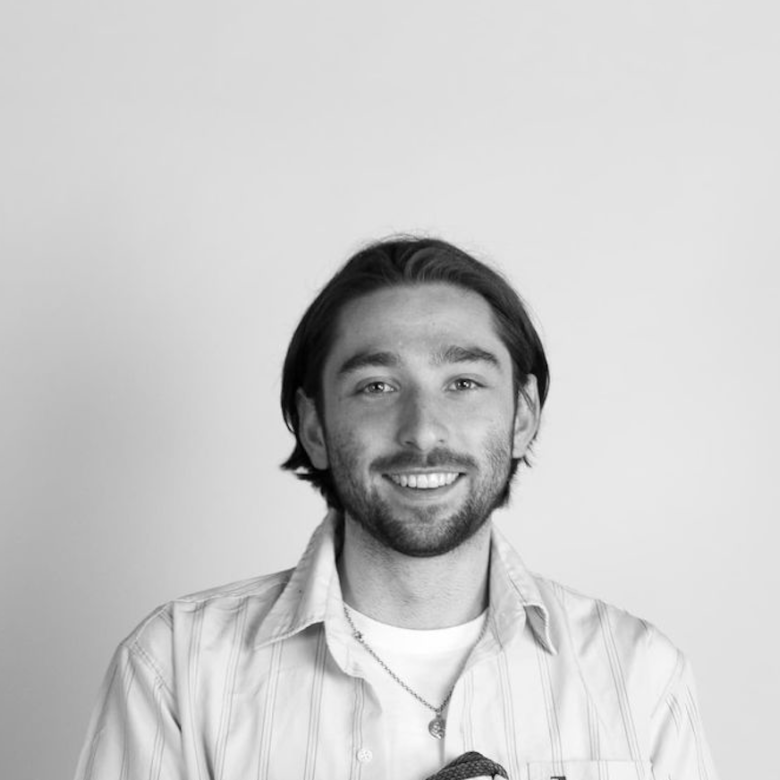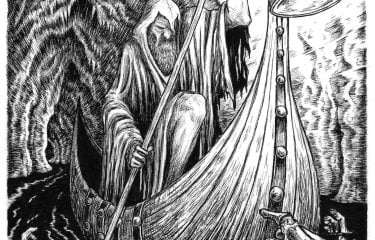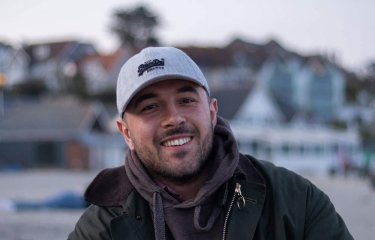Graduate wins Cannes Young Lion Award for suicide prevention campaign
08 September 2021

BA(Hons) Creative Advertising graduate Sam Rhodes has won a silver Cannes Young Lion Award for his response to an industry brief from CALM (Campaign Against Living Miserably).
The Cannes Young Lion Awards provide opportunities for creatives under the age of 30 to celebrate their creativity on a global stage. The competitions challenge entrants to respond to a live brief as outlined by an industry leader. This year the awards partnered with CALM, a registered charity that was set up to prevent suicide in the UK.
Tragically, 125 people in the UK take their own lives every week. CALM’s brief was to create an advert that would encourage people to get the help they need and show that there’s always a reason for living.
With a campaign that harnesses hyper-targeted advertising as a force for good, Falmouth graduate Sam Rhodes managed to separate himself from hundreds of submissions to win silver in the competition.
We caught up with Sam to discuss his award-winning campaign, his take on the industry and his advice for Falmouth’s current cohort of Creative Advertising students.
What do you think set you apart from other campaigns in the competition?
I think it’s about having an incredibly simple idea that makes the viewer think ‘why is this not already being done?’ When we were doing our research, we were typing in key terms associated with suicide hundreds and hundreds of times, and all we’d get on the occasional search term was the Samaritans number at the top.
At the same time, I was looking for a new pair of sunglasses and after I’d searched for some on Google I was stalked across the internet – and all my social media – by sponsored advertising from sunglasses companies.
It was a lightbulb moment. A single search is all it should take for someone who is suicidal to get the help they need, and that’s not what’s being done at the moment.
So, to answer your question, I think it’s simplicity. A clever thought that’s not been done before.
And I think with ours, it’s flipping advertising on its head. We see hyper-targeted advertising as this force for evil, but we’ve made it something that can be used for good.
Sadistically I think the judging panel don’t mind advertising being taken the mick out of so long as the result is a positive one!
This was a really exciting and challenging brief. With these topics you have to be incredibly sensitive and not exploit people’s mental illness for a successful campaign. There’s plenty of examples where things go horribly wrong – look at the Pepsi advert with Kendall Jenner.
It’s interesting to hear you mention that the public perception of advertising can be quite negative. Have you ever worked on a project where you were concerned your work would be misinterpreted?
I wouldn’t say so. But with any brief, you’re trying to create something that resonates with people.
For example, I’m currently working on a baby range advert for Lidl. It’s about trying to be relatable to parents in a traditional advertising space that’s really glossed over; you see all these brands that have mums in clouds, in white linen holding these perfect babies that aren’t crying… it’s a completely unrealistic façade of what parenting is.
So, on the face of it, our brief is to sell nappies but it’s actually about figuring out how to do the advert so parents look at the brand and say ‘finally, someone is showing a depiction of parenting that’s real’. If you can communicate something to the consumer in a way that resonates with them, then that’s important.
Are there any examples of recent adverts that you feel really hit the spot?
ITV are doing a great campaign, Drama v Reality. They get great actors and reality stars together in a scene, and they’re sort of fighting over which genre is better.
And that’s what ITV is; you have all these great dramas, and then you’ve got Love Island. I think it’s great that they’ve embraced what they are and are really playing to it.
I’d like to ask about the course at Falmouth, because we see so many Creative Advertising students doing well and it’s such a competitive industry. How do you think the course helped you gain the skills you needed?
To me the most beneficial part of the course was in final year. In a seven/eight-week term we presented five separate campaigns to five creative directors. They came down, and we stood up in front of them and presented what we’d been working on for a week and a half. That’s great professional practice. In terms of speaking to someone of authority in the industry and honing your presentation skills. Half of getting an idea sold is being to sell the idea yourself!
Getting comfortable with presenting is really important, even if you don’t like presenting. I get very nervous but I’ve acquired the skills through Falmouth and my previous job as an actor to help mask it.
Also, at Falmouth you come out with a great portfolio, if you’re willing to put the work in. I basically treated my final year as a 9-5 job.
You can come out with a really great portfolio, which is what you need to get a book crit, which you need to get a placement, which you need to get a job.
So, if we had all the current Creative Advertising students with us right now, would that be your number one bit of advice?
Absolutely – sort your portfolios out! You want to do something that will make you stand out.
Also, if you can win a D&AD award, that really helps! It opens a lot of doors – it won’t keep you in the room, but it will get you in there.




